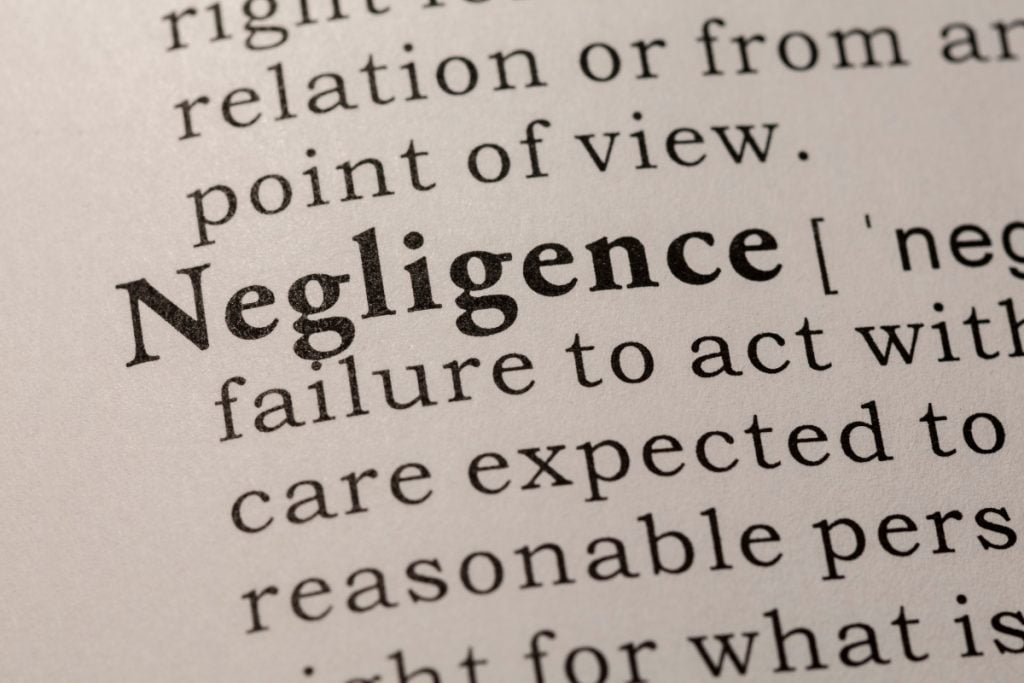Organizations across industries must understand the perverse effects of negligent hiring practices if they wish to stay at the top of their game. After all, having an unqualified or untrustworthy employee can quickly lead to workplace catastrophes, damaging an organization’s reputation, and breaching client trust. Recently, the news has seen a string of reports that highlight the disastrous outcomes of substandard hiring protocols.
Take the case of the tech giant whose negligence in hiring led to multiple data security breaches. A background check revealed that the tech professional on staff had a history of theft and criminal activities. Needless to say, this individual utilized their access privileges to breach the company’s security protocols and steal corporate data.
As a result, the company not only had to pay millions in fines but also faced the wrath of its customers as their identities were put at risk. It is clear that organizations cannot afford to take hiring decisions lightly if they wish to avoid similar catastrophes.
In this blog post, we will explore the consequences of negligent hiring practices and how to best avoid them. By introducing an effective and secure recruitment process, organizations can mitigate the risks associated with hiring employees and enjoy greater trust from customers and clients.
What is Negligent Hiring?

Negligent hiring is a phrase used to refer to companies that fail to exercise due care during the hiring process. They have failed to investigate the potential employee’s background and qualifications or failed to perform the necessary job-seekers screenings. This could include failing to check employees’ criminal records, past employment history, and professional licenses, not conducting drug testing, or skipping reference checks.
Negligent hiring policies can also refer to employers hiring individuals who lack the necessary skills, education or experience for a position. Companies also can be held liable for negligent hiring if they are aware of any dangerous behavior of the new employee and still proceed with the hiring process. In these cases, employers may be found negligent for not properly assessing the risk and adequately protecting the safety of their customers and employees.
Why Is Negligent Hiring Such a Problem?

Negligent hiring is one of the most serious problems facing businesses today, as the wrong hire can have a long-term negative impact on a company’s culture, operations, and finances. By not properly assessing a potential hire’s qualifications and trustworthiness, companies can face legal issues, loss of productivity, and damaged reputations that could take years to recover from.
In order to find and retain top talent, employers should take the time to thoroughly screen potential employees and clearly define the job expectations. Failing to do so can lead to legal challenges as well as other workplace issues that can have far-reaching implications for a company’s bottom line.
Negligent hiring practices can lead to civil lawsuits if an employee misrepresents themselves or fails to disclose something that may affect their job performance. Additionally, employers are responsible for providing a safe and secure workplace, which may be compromised by a negligent hiring process. Poorly screened employees may have criminal records or behavioral issues that can make the work environment unsafe or hostile.
Employers should also be aware of the potential effect negligent hiring can have on their professional reputation in the industry. Complaints and reports of negligent hiring practices can damage a business’s image and cost them future business opportunities. In extreme cases, negligent hiring can even lead to hefty fines and penalties imposed by regulatory authorities.
Negligent hiring is a serious problem that all employers should be aware of. Taking the time to properly vet potential hires can help ensure they fit the job requirements while also ensuring the safety of their workplace and reputation.
How to Avoid Negligent Hiring Practices

Hiring the wrong employee can have disastrous effects on any business. Negligent hiring practices, such as failing to properly research an employee’s background, not conducting a thorough interview process, or overlooking an applicant’s red flags, can easily result in the wrong hire. To ensure that the right person is hired for the job, proper steps must be taken to avoid negligent hiring practices.
The most important step to take is to ensure that a comprehensive background check process is in place before any hiring decision is made. Conducting a proper background check to verify an individual’s identity, work history, background, and qualifications is essential in avoiding negligent hiring. Furthermore, it is important to consider additional aspects such as reviewing references, verifying social media accounts, and using in-depth assessment tests to put potential employees through.
It is also crucial to ensure that the entire recruitment process is structured, organized, and well thought-out. Interviews should be conducted in an appropriate environment and should allow ample time for each applicant to express themselves. There are many pre-screening questions that can be used to differentiate between good and bad applicants. Additionally, having multiple qualified people in the room during an interview can help provide different perspectives on the applicant’s answers.
Another key consideration when it comes to avoiding negligent hiring is to consider the culture fit of the applicant. Every organization has a unique set of values and it is important that the candidate aligns with these values. To ensure this, ask questions about the candidate’s values, interests, and goals to make sure that there is a cultural fit.
Finally, it is important to remember to document every part of the recruitment process. Keeping records of all interviews, assessments, and background checks can help to protect the organization from any legal issues. Negligent hiring practices can result in a lot of unnecessary and costly consequences and taking the time to properly think through the recruiting process is essential in avoiding such consequences.
Tips for Developing an Effective Recruitment Process

Tips for Developing an Effective Recruitment Process
Creating and adhering to an effective recruitment process is essential for any organization looking to reduce the risk of negligent hiring practices. Here are five key tips for developing an effective recruitment process:
- Establish a Job Description. An accurate job description helps to ensure that the applicant being recruited has the necessary qualifications for the role. Clearly identifying the requirements of the job also helps to prevent potential discriminatory practices.
- Utilize a Formal Interview Process. A formal interview process should be used to assess an applicant’s skills, attitude, and values. This allows employers to gain insight into the applicant’s ability to fit the role while avoiding any questions related to protected characteristics such as age, race, gender, etc.
- Conduct Background Checks. It is important to perform background checks to ensure applicants meet the required standards and to ensure that applicants do not have a history of negligent hiring practices. Background checks should always be conducted in compliance with applicable laws, with written authorization from the applicant, and with proper notice and disclosure.
- Consider Other Hiring Practices. Depending on the type of role, employers may also want to consider utilizing applicant tracking systems, using a job portal, or running an aptitude test. These additional measures help to provide better insight into an applicant’s abilities and qualifications for the role.
- Develop a Training Program. Following an effective recruitment process is only part of the equation for preventing negligent hiring practices. To ensure consistency, employers should establish a training program for their recruitment specialists and managers, which covers all relevant legal issues and best practices. By following these tips and instituting an effective recruitment process, organizations can reduce the risk of negligent hiring and ensure they are getting the best candidates for the job.
Conclusion
Negligent hiring practices can have serious legal and financial consequences for business owners and employers. Unexpected problems may arise due to negligence in the recruiting process which could lead to lawsuits, workplace harassment or discrimination claims, and loss of revenue.
Business owners must take proactive steps to prevent negligent hiring by making sure to conduct background checks, check references and verify credentials. Additionally, employers should thoroughly train their employees on the nuances of the job and their rights as employees. By taking appropriate steps to prevent negligent hiring, business owners can ensure their liability and reputation remain intact.
To avoid the potential repercussions of negligent hiring practices, work with a professional background check company like Impeccable Background Solutions. Our background check services handled by a team of qualified experts will help your organization through the background check process. Give us call at 404.796.8419 to let us know what you need, and we’ll make sure that your organization has all of the information that it needs to make the best decision for its benefit.





